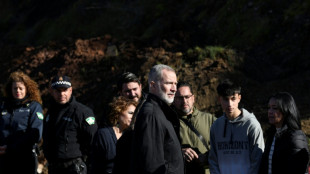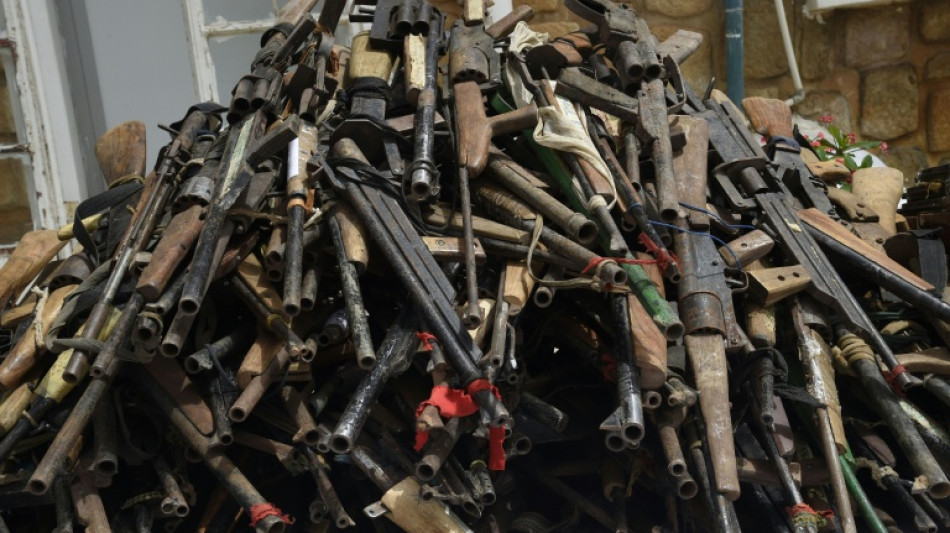
-
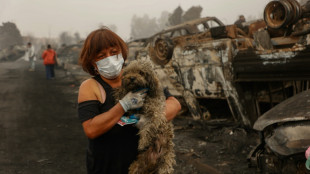 Chile blaze victims plead for help from razed neighborhoods
Chile blaze victims plead for help from razed neighborhoods
-
Russian minister visits Cuba as Trump ramps up pressure on Havana
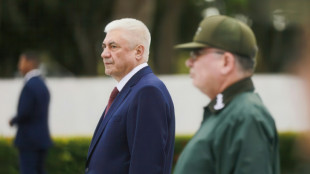
-
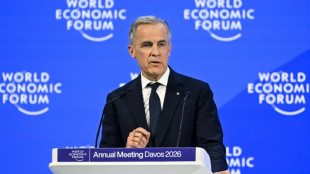 World order in 'midst of a rupture': Canada PM Carney tells Davos
World order in 'midst of a rupture': Canada PM Carney tells Davos
-
Senegal's 'historic' AFCON champs honoured with parade, presidential praise
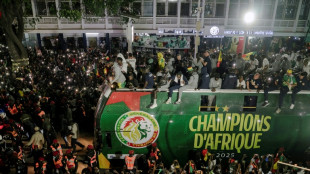
-
 Audi unveil new car for 2026 Formula One season
Audi unveil new car for 2026 Formula One season
-
Man City humiliated, holders PSG stumble, Arsenal remain perfect

-
 Vinicius, Real Madrid need 'love' not whistles: Bellingham
Vinicius, Real Madrid need 'love' not whistles: Bellingham
-
Late Suarez winner stops Champions League holders PSG in Lisbon

-
 Frank seeks Spurs 'momentum' after beating Dortmund
Frank seeks Spurs 'momentum' after beating Dortmund
-
Jesus' 'dream' brace at Inter fires Arsenal into Champions League last 16

-
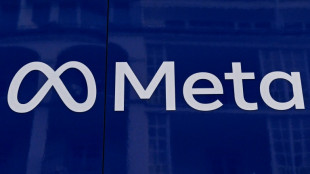 US regulator appeals Meta's court victory in monopoly case
US regulator appeals Meta's court victory in monopoly case
-
Netflix shares fall as revenue appears to stall

-
 Tottenham beat 10-man Dortmund to hand Frank stay of execution
Tottenham beat 10-man Dortmund to hand Frank stay of execution
-
Mbappe, Vinicius help Real Madrid thrash Monaco in Champions League

-
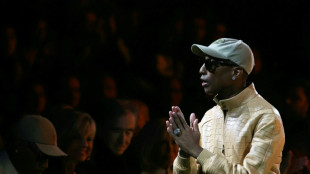 Men's Fashion Week kicks off in Paris with Louis Vuitton show
Men's Fashion Week kicks off in Paris with Louis Vuitton show
-
Jesus fires Arsenal past Inter and into Champions League last 16

-
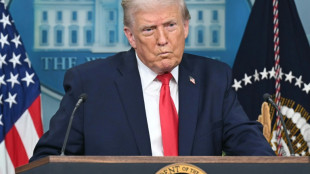 Muted anniversary: Trump marks first year back with grievances
Muted anniversary: Trump marks first year back with grievances
-
Humiliated Man City have to 'change the dynamic': Guardiola

-
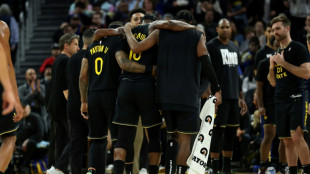 Golden State's Butler out for season with ACL injury: agent
Golden State's Butler out for season with ACL injury: agent
-
Venezuela woos US oil majors with new investment czar
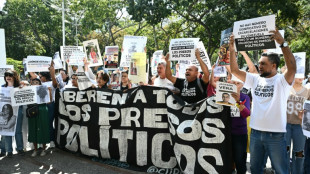
-
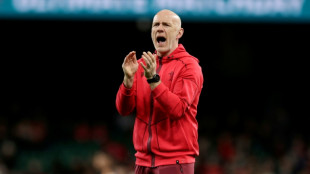 Wales Six Nations strike threat just 'speculation' for Tandy
Wales Six Nations strike threat just 'speculation' for Tandy
-
Syria government agrees new truce with Kurdish forces
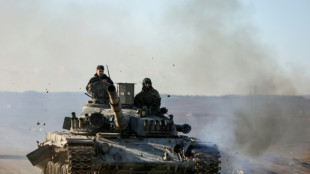
-
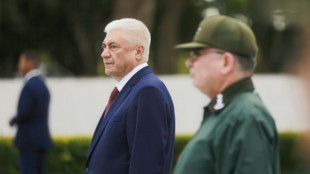 Russian interior minister in Cuba, which faces pressure from Trump
Russian interior minister in Cuba, which faces pressure from Trump
-
US finalizes rule for deep-sea mining beyond its waters

-
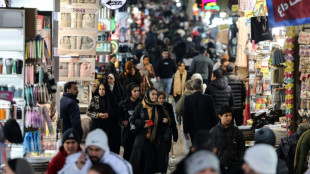 Iran protest crackdown latest developments
Iran protest crackdown latest developments
-
Muted anniversary: Trump marks first year back with familiar grievances
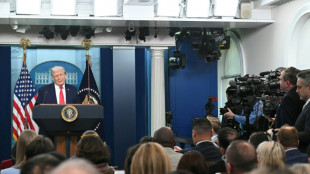
-
 Man City stunned by Bodo/Glimt in epic Champions League upset
Man City stunned by Bodo/Glimt in epic Champions League upset
-
Cooler temperatures offer respite for Chile firefighters
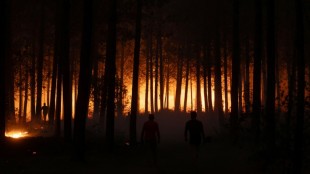
-
 Scientists plan deep-sea expedition to probe 'dark oxygen'
Scientists plan deep-sea expedition to probe 'dark oxygen'
-
Howe calls on Newcastle to use spirit of Robson to inspire win over PSV

-
 Massive US presence makes its mark on Davos
Massive US presence makes its mark on Davos
-
Ter Stegen to join Girona on loan: Barca coach Flick

-
 France PM forces part of budget through parliament without vote
France PM forces part of budget through parliament without vote
-
Scotland boss Townsend picks veterans Gray and Cherry for Six Nations

-
 Record try-scorer Penaud faces French axe for Six Nations
Record try-scorer Penaud faces French axe for Six Nations
-
UK approves plans for Chinese mega-embassy in London
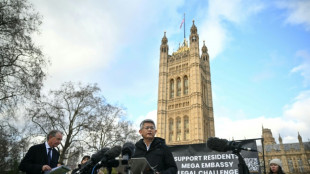
-
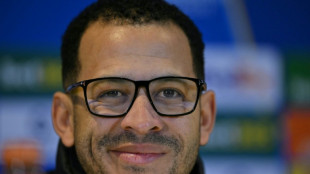 Rosenior keen to build winning ties with 'world-class' Fernandez
Rosenior keen to build winning ties with 'world-class' Fernandez
-
Dakar delights in Senegal parade honouring AFCON champions
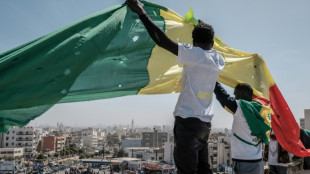
-
 UK comedian Russell Brand in court on two new rape charges
UK comedian Russell Brand in court on two new rape charges
-
France set to face New Zealand with second-string squad

-
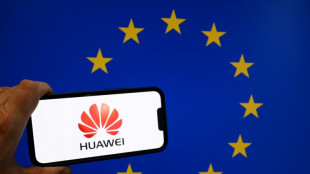 Eyeing China, EU moves to ban 'high-risk' foreign suppliers from telecoms networks
Eyeing China, EU moves to ban 'high-risk' foreign suppliers from telecoms networks
-
Struggling Suryakumar will not adapt style to find form before T20 World Cup
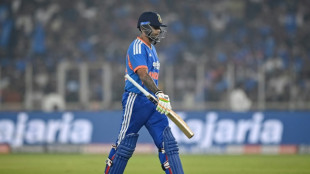
-
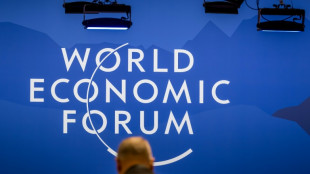 World stocks sink, gold hits high on escalating trade war fears
World stocks sink, gold hits high on escalating trade war fears
-
Easier said than done for US to apply tariffs on single EU states
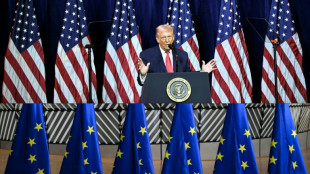
-
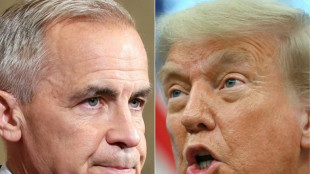 Canada military models response to US invasion: report
Canada military models response to US invasion: report
-
Salah returns to Liverpool training after AFCON

-
 Milan menswear shows add bling with brooches
Milan menswear shows add bling with brooches
-
Scotland recall Gray, Cherry for Six Nations

-
 Scheib storms to Kronplatz giant slalom victory as Brignone impresses in World Cup return
Scheib storms to Kronplatz giant slalom victory as Brignone impresses in World Cup return
-
Chagos Islands: international dispute and human drama
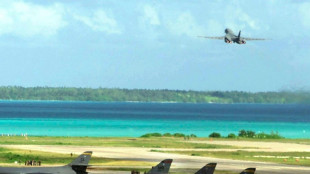

$346 mn US-Nigeria arms deal sets rights groups on edge
Rights groups are questioning a multimillion-dollar arms sale by the United States to Nigeria as security forces in the west African nation continue to be accused of killing civilians with impunity.
Last week the State Department approved the possible sale of $346 million in weapons, including bombs, rockets and munitions, to Nigeria, which is battling jihadist militants in the northeast, armed "bandit" gangs in the northwest and separatists in the southeast.
Civilians have often been caught in the crossfire: in May, the Nigerian air force bombed a local self-defence group in Zamfara state, mistaking them for bandits, residents told AFP.
The State Department's own annual human rights report on Nigeria, released the same week it approved the weapons sale, warned of air strikes killing civilians and torture of detainees.
The sale announcement was "conspicuously silent on the Nigerian military's record of serious human rights abuses and on what safeguards, if any, will be implemented", Anietie Ewang, Nigeria researcher for Human Rights Watch, said in a statement.
In an interview with AFP, she added that the US Congress, which has the authority to pause such sales, "really needs to ask these tough questions that the State Department is dancing around".
Spokespeople for the Nigerian army, air force and the US embassy in Abuja did not respond to requests for comment.
Hundreds of civilians have been killed in air strikes in Nigeria in recent years, though the authorities sometimes dispute hitting civilians.
In the Zamfara bombing, the air force said it struck "terrorists".
Though violence linked to the Boko Haram uprising has receded since its peak between 2013 and 2015, Nigeria's security situation remains dire as jihadist attacks continue, including from the Islamic State West Africa Province group.
- US sales 'good news' -
The United States is not Nigeria's top weapons supplier, typically trailing third behind China and Russia, according to a database on arms sales from the Stockholm International Peace Research Institute (SIPRI).
In the past five years, that landscape has shifted, with China, Turkey, Brazil, Pakistan and the Netherlands making up the top suppliers, according to SIPRI's database of publicly available "major conventional arms" transfers.
But "the US still remains the beacon of democracy, and it should still be an example of holding those human rights standards", Isa Sanusi, Nigeria director for Amnesty International, told AFP, calling on Washington to strictly monitor how its arms are used, and whether any are tied to abuses.
In a report released this month, the rights group warned of extrajudicial killings by the army in Nigeria's southeast, along with civilian casualties from airstrikes.
Sadeeq Shehu, a former air force spokesman, told broadcaster Arise News that the sale was "very good news", and served as proof of increased civilian protection mechanisms.
"There are alternatives, but then certain things, you have to get from the Americans," Shehu said.
- Previous sales paused -
The United States supplied $232 million in "security sector assistance", $593 million in foreign military sales and $305 million in "direct commercial sales" from private companies to the country from 2000 to 2021, according to a report from Brown University.
But alleged corruption and rights abuses in Nigeria have weighed on the relationship in the past: under president Barack Obama, the United States government blocked arms sales to the country and mostly worked with neighbouring Chad and Niger in the fight against Boko Haram.
In 2021, US lawmakers temporarily held up a sale of attack helicopters worth nearly $1 billion over human rights concerns, though it ultimately went through.
Malik Samuel, an Abuja-based conflict researcher with the non-profit Good Governance Africa, said while a lack of accountability was a problem in the army, it was also worth questioning why the military's superior weaponry has not led it to victory.
"You can't tell me that the Boko Haram factions or even the bandits... have more sophisticated weapons," he said, calling for an emphasis on better strategy and intelligence gathering.
N.Schaad--VB

